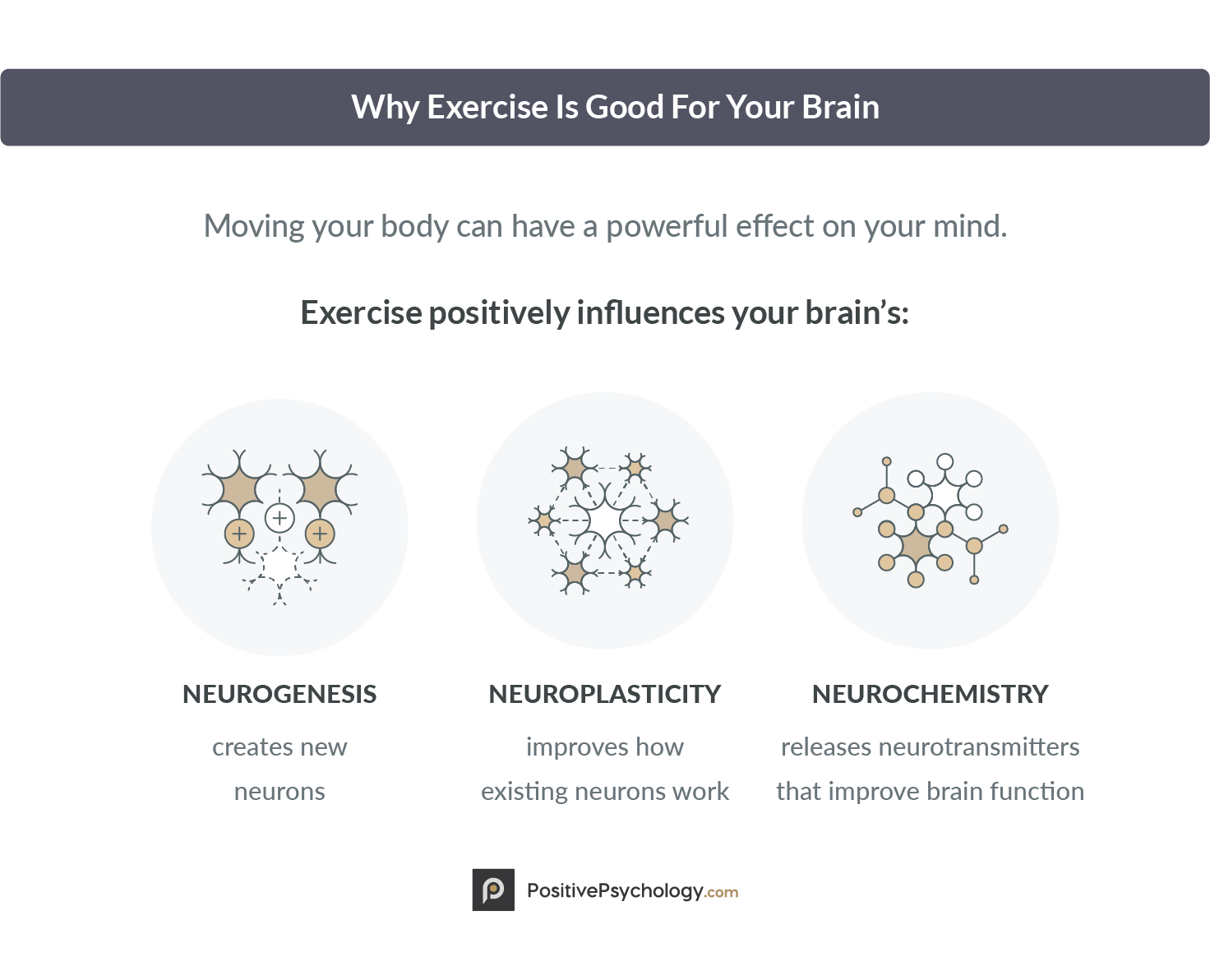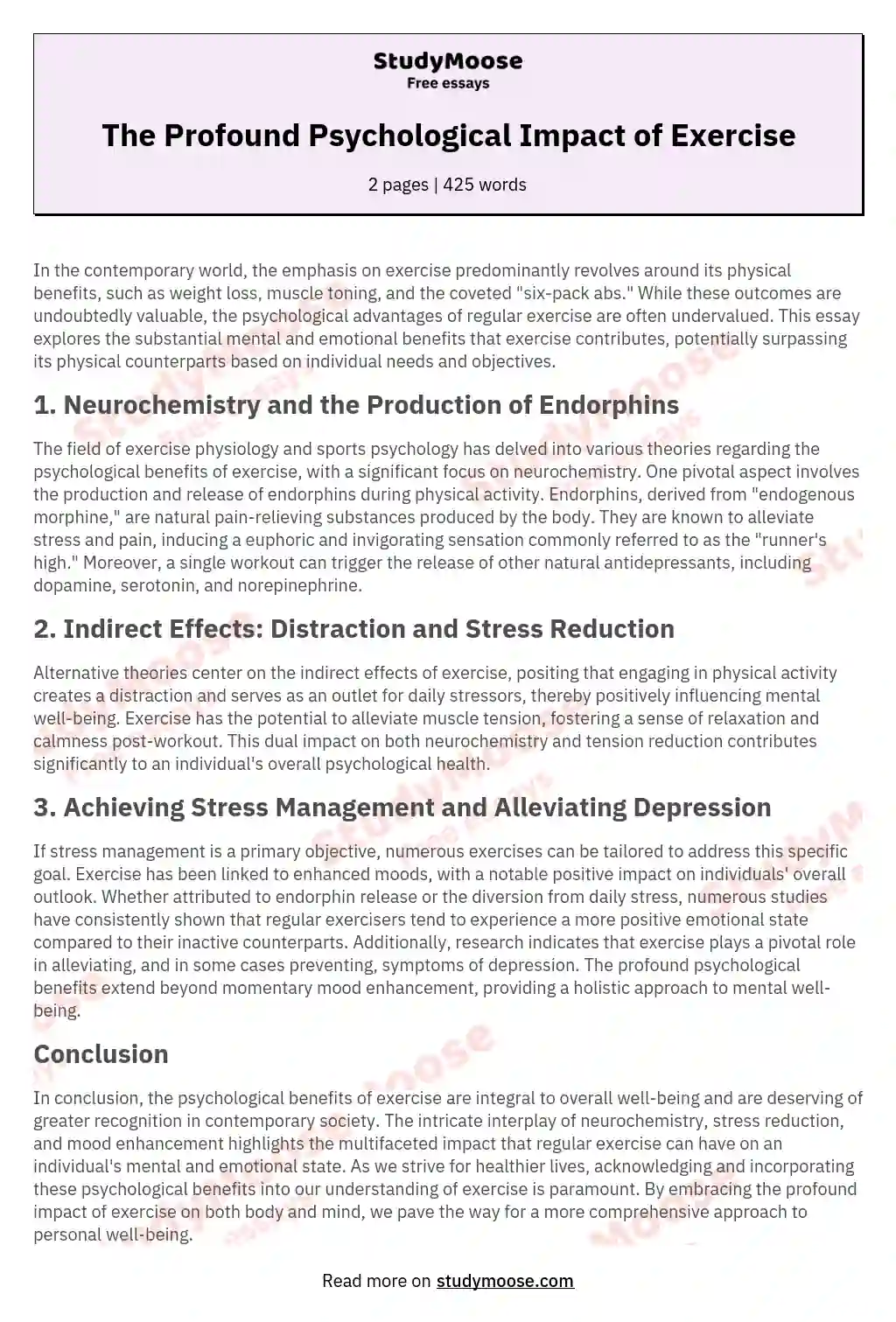Physical activity has long been recognized as an important factor in maintaining physical health and fitness, but the psychological benefits of exercise are equally significant. Engaging in regular physical activity can improve mental health and well-being, reduce stress and anxiety, and boost self-esteem and confidence.
One of the key psychological benefits of physical activity is its ability to reduce stress and improve mood. Exercise stimulates the production of endorphins, which are neurotransmitters that act as natural painkillers and mood elevators. Endorphins also help to reduce the perception of pain and can improve sleep quality. In addition, physical activity can help to relax the mind and body by promoting the release of tension and reducing muscle fatigue.
Another important psychological benefit of exercise is its ability to improve self-esteem and body image. Engaging in physical activity can help individuals to feel more confident in their own bodies, as they see improvements in their physical appearance and fitness levels. This can lead to increased self-worth and a greater sense of accomplishment, which can have a positive impact on overall mental health and well-being.
Exercise can also have a positive effect on anxiety and depression. Studies have shown that regular physical activity can reduce the symptoms of anxiety and depression, and can even be as effective as medication in some cases. This is thought to be due to the effects of exercise on the brain, which can help to regulate mood and improve feelings of well-being.
In addition to these benefits, physical activity can also improve cognitive function and enhance mental clarity. Exercise has been shown to improve memory and concentration, as well as increase creativity and problem-solving skills. This is thought to be due to the effects of physical activity on the brain, which can stimulate the production of new neurons and improve blood flow to the brain.
Overall, the psychological benefits of physical activity are numerous and far-reaching. Engaging in regular exercise can improve mental health and well-being, reduce stress and anxiety, and boost self-esteem and confidence. Whether through structured workouts or simply incorporating more physical activity into daily life, the benefits of exercise are undeniable and should not be overlooked.
5 Psychological Benefits of Physical Activity

Exercise is also associated with decreased feelings of depression because regular workouts produce endorphins that can enhance our sense of well-being, help build confidence, and form healthy coping mechanisms. First a reflection of characteristics that constitute physical exercise would be undertaken and second, perspectives of mental health will be outlined in relation to the topic. Working with people with lived experience, we have co-produced a physical activity toolkit. The researchers noted that the group that exercised regularly had smaller declines in positive mood compared to the other group. You are free to use it as an inspiration or a source for your own work. On the other hand, physical activity increases body temperature, which can have calming effects on the mind.
Exercise and Longevity: The Surprising Benefits of Physical Activity

Obviously during intense aerobic activity, the brain is stimulated differently than it is by lifting heavy weights. Eventually, Becca built up the stamina that today allows her to run, swim, weight train, and box every week, a combination she credits with keeping her stress levels under control. Physical, Mental, And Overall Health Benefits Of Regular Exercise — How Exercise Improves Health Team sports not for you? Most of us know all the physical benefits of exercise—lower blood pressure, lower risk of diabetes, weight loss, and increased energy, just to name a few. What is the Rethink Mental Illness physical activity toolkit? The Case Reports, open cold water swimming helped a 24-year-old woman with Working Out In addition to building physical muscles, working out can help strengthen the mind. Everyone has their own way to recharge their sense of well-being something that makes them feel good physically, emotionally, and spiritually even if they arent consciously aware of it. There are a significant number of psychological benefits to be had from exercising. In this other article you can read about the benefits of hygge: How to use hygge to combat stress and anxiety.
How Physical Activity Improves Mental Health

Personally, I know that few things can improve my day as quickly as a walk around the block or even just getting up from my desk and doing some push-ups. It protects us from cognitive decline Not only do sports and physical activity have an amazing effect on our mood, they also have repercussions in our cognitive abilities. The more the people will adopt a We can improve our quality of life by adopting physical activities in our daily life. Regular physical activity can lower blood pressure, improve cholesterol levels, and decrease the likelihood of developing type 2 diabetes. Or, if you discover that you dread hitting the gym, try exercising outside.
The Mental Health Benefits of Physical Exercise on Anxiety

An exercise psychologist can guide individuals on the types of physical activity that can help boost their mental health and encourage them to embrace and maintain a healthier lifestyle that includes exercising for mental health. He explained to International Journal of Environmental Research and Public Health found that, overall, studies suggest that running bouts of variable lengths and intensities, and running interventions can improve mood and mental health. Exercising regularly has been shown to have a clear neuroprotective effect on the brain. So the next time you go for a jog, not only could it help improve your physical appearance, it will be helping your brain. Individuals should consider their current health status in each domain physical, cognitive, and psychological when starting an exercise regimen in order to assess any changes that may occur in overall wellness. Physical activity guidelines advisory committee report, 2008. One of the most effective ways at protecting your brain from falling victim to neurotoxicity is to exercise.









